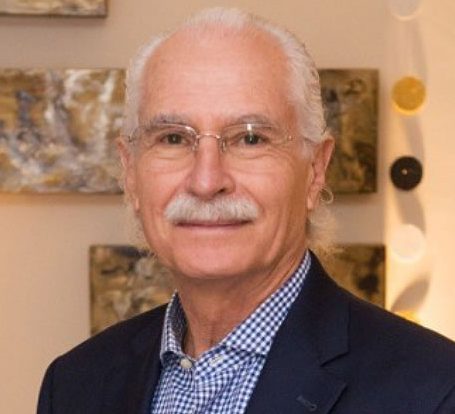Social Stream
Leggi le ultime notizie dei nostri social
-
Andrea Prencipe
Andrea is an accomplished academic leader with about 30 years of experience in advancing research and education across international institutions and countries (Belgium, France, Italy, Netherlands, Norway, UK, US, and Vietnam). His career began at Sussex University (UK), where he established himself as an international scholar (+10k citations), publishing in prestigious journals such as Administrative Science Quarterly and Organization Science. His work spans academia and industry, including significant contributions at Finmeccanica Group (now Leonardo Company).
As the Rector of Luiss University (I), Andrea has led transformative initiatives that have propelled the institution into the upper echelons of global rankings. Under his leadership, Luiss achieved world’s Top 20 status in Politics and International Studies (QS Ranking) and its MSc in Management and MSc in Corporate Finance climbed to world’s Top 30 (FT Ranking). He has doubled international collaborations, tripled joint degree programmes, and pioneered educational initiatives like the ACE (America China Europe) programme – a Triple BA in Business Administration.
Andrea is a visionaire in educational innovation, introducing ‘enquiry-based learning’ to educate students for a rapidly changing world. His commitment to diversity is reflected in Luiss’s faculty, which now includes scholars from over 20 countries, and a student body representing more than 100 nationalities. A passionate advocate for interdisciplinary, international, and innovative education, Andrea continues to inspire and lead initiatives that shape the future of academia.
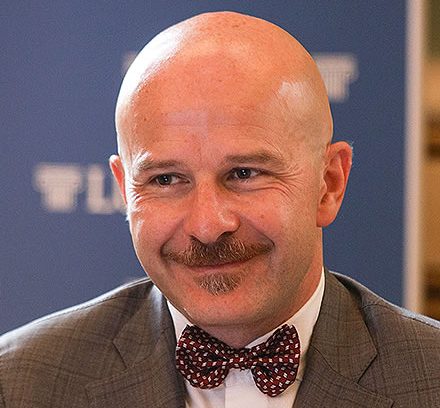
-
Maria Cristina Messa
Maria Cristina Messa has been the Italian Minister of University and Research (MIUR) since February 2021.
She previously served as the Rector of the University of Milano-Bicocca (2013–2019) and as a member of the Board of the Conference of Italian University Rectors, with the role of Delegate for research. In July 2013, she was designated as one of the Italian Delegates for Horizon 2020, and she was the MIUR Delegate for Research Infrastructures, including e-infrastructures. She served as the Vice President of Italy’s National Research Council (CNR), from 2011 to September 2015.
Previously, she was Visiting Researcher at the Cerebro-Vascular Research Center at Penn University, Post MD Clinical Instructor in the Division of Nuclear Medicine and Biophysics, Department of Radiological Sciences, UCLA School of Medicine in Los Angeles, and Visiting Senior Scientist at the Neuroscience Group, MRC Cyclotron Unit, Hammersmith Hospital, Imperial College London.
Over the course of her career, she has widely published and held lectures on university, research, diagnostic imaging, and health care, and participated in many national and international committees and working groups. Her expertise includes experimental research in diagnostic imaging, nuclear medicine, ad radiology, with a research focus on neurodegenerative and neoplastic pathologies.
She has received the 2014 Marisa Bellisario award, “Donne Ad Alta quota”, an award that annually is addressed to women who stand out for their professionalism in the fields of management, science, economics and social activities, both nationally and internationally.
Minister Messa graduated with honours in Medicine and Surgery and subsequently specialized in Nuclear Medicine at the University of Milan.

-
Santiago Iñiguez
Santiago Íñiguez de Onzoño is the President of IE University and Professor of Strategic Management.
Additionally, he is member of the boards of Renmin University Business School (China), Antai Business School (China), Luiss Business School (Italy), Mazars University (France), and FGV-EASP Fundaçao Getulio Vargas (Brazil). He has also served as member of the Board of EFMD, Chairman of the Association to Advance Collegiate Schools of Business, and Vice-Chairman of the Financial Times/IE Business School Corporate Learning Alliance.
Santiago Íñiguez plays a leading role in business education and actively takes part in different forums and networks to foster innovation and development in higher education. He is a regular speaker at international conferences and frequently contributes in different journals and media on higher education and executive development.
Moreover, he is the author of “The Learning Curve: How Business Schools Are Reinventing Education” (2011) and “Cosmopolitan Managers: Executive Education That Works” (2016), as well as co-editor of “Business Despite Borders: Companies in the Age of Populist Anti-Globalization” (2018).
He holds a Degree in Law, a Ph.D. in Moral Philosophy and Jurisprudence (Complutense University, Spain) and an MBA from IE Business School. He was a Recognized Student at the University of Oxford.
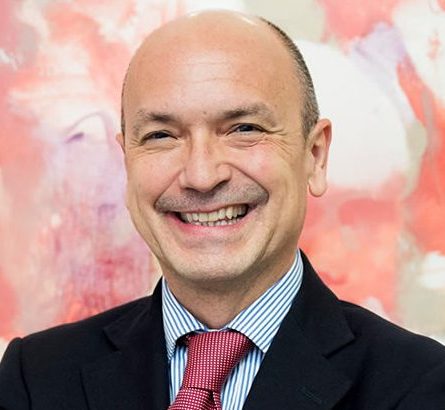
-
Francesco Starace
Francesco Starace has been Chief Executive Officer and General Manager of Enel S.p.A. since May 2014.
Starace joined the Enel Group in 2000, holding several top executive positions including Head of Business Power (from 2002 to 2005) and Managing Director of the Market Division (from 2005 to 2008). From 2008 to 2014, he served as CEO and General Manager of Enel Green Power, the Group’s renewable power generation subsidiary and a leading player in the global renewables industry.
Ealier on, he began his career in construction management of power generation plants, first with the General Electric Group, then at ABB Group, and subsequently at Alstom Power Corporation, where he was Head of Gas Turbine Sales Worldwide. He also gained considerable international professional experience by working in Egypt, Saudi Arabia, Switzerland and the United States.
Since June 2014, he has been a member of the Advisory Board of the United Nations’ Sustainable Energy 4 All initiative. In May 2015, he joined the Board of Directors of the United Nations’ Global Compact. From January 2016 until January 2018, he was co-chair of the World Economic Forum’s Energy Utilities and Energy Technologies Community. In October 2016, he was nominated co-chair of the B20 Climate & Resource Efficiency Task Force. From June 2017 to May 2019, he served as President of Eurelectric, the European association for the electricity industry.
He holds a Bachelor’s Degree in Nuclear Engineering from the Polytechnic University of Milan.
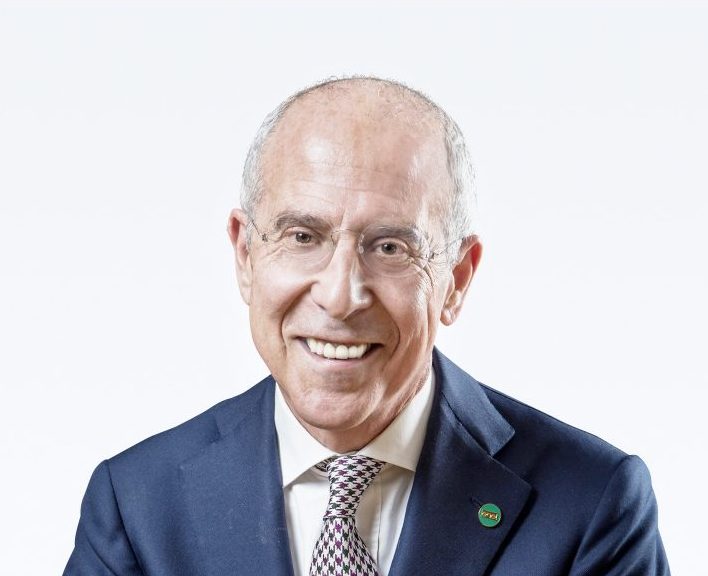
-
Francesca Bria
Francesca Bria is the Chair of CDP Venture Capital SGR.
Additionally, as an information technologist and advisor on digital strategy, technology and information policy, she is also founder of the Decode Project, an EU-wide effort to reclaim data sovereignty of citizens.
With a background in social science and innovation economics, Bria is an Associate Professor, Researcher and Senior Advisor on Technology and Innovation Policy at Univeristy College London.
She has also been principal investigator of the DSI project on digital social innovation in Europe, and Chief Technology and Digital Innovation Officer for the City of Barcelona.
Francesca Bria is a member of the Internet of Things Council and an advisor for the European Commission on Future Internet and Smart Cities policy. She is also a member of the EC Expert Group on Open Innovation and of the European Research Cluster on the Internet of Things, and she has been advisor of the City of Rome and the Region of Lazio on innovation policy, open technology, and open cities.
In 2018, Bria was named one of Europe’s Top 50 Women In Tech, a ranking developed by Forbes.
She holds a Bsc. In Social Sciences and Economics from La Spienza in Rome, an Msc. In E-Business and Innovation from the University of London, Birbeck, and a Ph.D. in Innovation, Entrepreneurship and Design from the Imperial College London.
Francesca Bria è Commendatore dell’Ordine al Merito della Repubblica Italiana.
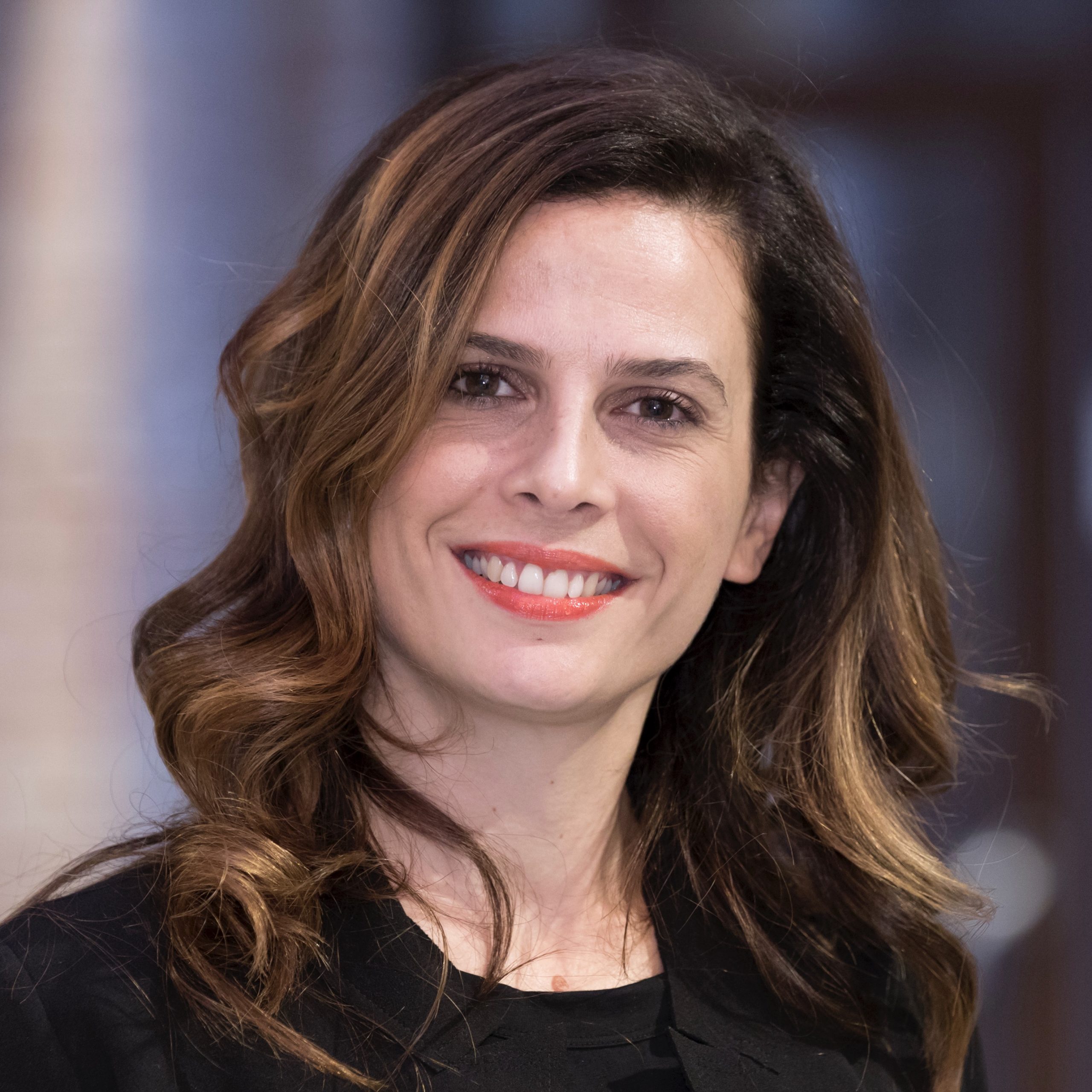
-
Andrew Jack
Andrew Jack has worked as a journalist for the Financial Times since 1990.
He is currently the Global Education Editor, reporting and developing new projects including as editorial lead for free online FT access for schools. He previously ran the curated content team, picking the best news and analysis from the FT and the rest of the web, including FT Health.
He was previously Deputy Editor of the Analysis section, Pharmaceuticals Correspondent, Moscow Bureau Chief, Paris Correspondent, Financial Correspondent, general reporter and corporate reporter. He is author of the books Inside Putin’s Russia and The French Exception, as well as numerous specialist reports, and has appeared on the BBC and other media outlets.
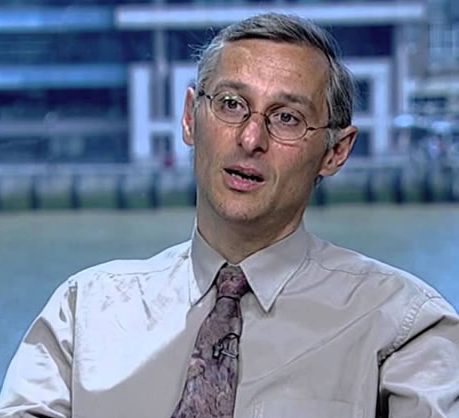
-
Patrick Awuah
Patrick Awuah is the founder and president of Ashesi University, a private, not-for-profit institution in Ghana.
Patrick was nominated as a Global Leader 2007 by the World Economic Forum; and in recognition of his service to Ghana, was awarded Membership of the Order of the Volta by His Excellency, President J.A. Kufuor in July 2007.
In 2009, he won the Microsoft Alumni Foundation “Integral Fellow” award and the John P. McNulty Prize from the Aspen Institute; and in 2010 he was awarded the Millenium Excellence Award for Educational Development in recognition of his exceptional leadership in the area of education.
He is a Fellow of the Africa Leadership Initiative (a branch of the Aspen Global Leadership Network), a member of the United States Council on Foreign Relations, the Pacific Council on International Policy, and the United States Tau Beta Pi honor society for excellence in engineering.
He holds bachelor degrees in Engineering and Economics from Swarthmore College, and an MBA from UC Berkeley’s Haas School of Business. In 2004, Swarthmore awarded Patrick an honorary doctorate in recognition of his leadership in African higher education. He also holds an honorary Doctor of Laws awarded by Babson College.
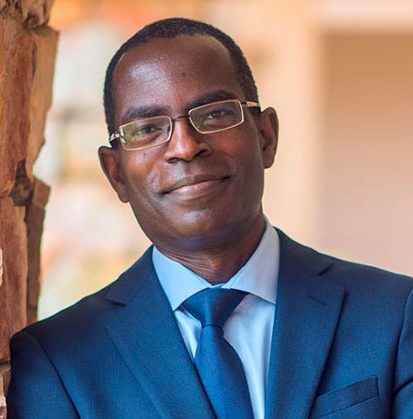
-
Alice Gast
Professor Alice P. Gast became President of Imperial College London in September 2014.
Under her leadership, Imperial College London has strengthened its ties with policymakers, industry, philanthropists and alumni. As President, she has promoted collaboration and societal engagement and prioritised entrepreneurship and innovation.
Prior to her appointment at Imperial, Professor Gast was the 13th President of Lehigh University (2006-2014). Other leadership roles include serving as the Vice-President for Research and Associate Provost and Robert T. Haslam Chair in Chemical Engineering at the MIT (2001-2006), and being a faculty member at Stanford University (1985-2001).
Professor Gast is a member of several UK and international advisory committees and boards, including the League of European Research Universities and the Academic Research Council for the Singapore Ministry of Education. Professor Gast is a member of the World Economic Forum Global University Leaders’ Forum, Co-Vice-Chair of the Advisory Board for the Centre for the Fourth Industrial Revolution and a Fellow of the American Academy of Arts and Sciences,
She has been awarded honorary degrees by the Universiti Teknologi Malaysia, the University of Notre Dame, the University of Pierre and Marie Curie, and the University of Western Ontario. In 2017 she received an honorary professorship from Tsinghua University.
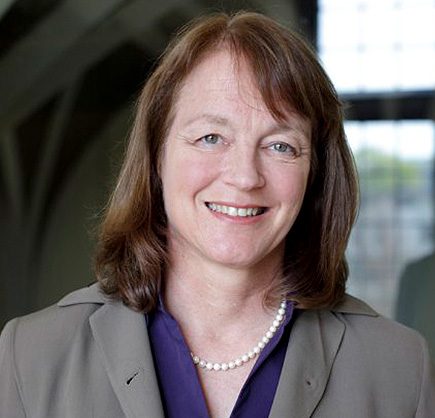
-
Ahmad Hasnah
Dr. Ahmad M. Hasnah is the president of Hamad Bin Khalifa University (HBKU), and prior to that, he was appointed as Executive Vice-President and Provost, becoming instrumental in the establishment of four new colleges. Moreover, he is currently overseeing three research institutes under HBKU that focus on energy and environment, biomedicine, and computing.
Additionally, he is a member of Qatar Foundation (QF) for Education, Science, and Community Development in Doha, and since he joined it in 2002, he has been a key player in the development of Education City into a unique hub for knowledge and education.
Dr. Hasnah has also taken part in the conception and shaping of the World Innovation Summit for Education (WISE), a unique global event which aims to create an international multi-disciplinary platform to shape education models, explore ground-breaking innovations and take concrete steps in making significant improvements to worldwide education in the 21st century.Dr. Hasnah has been a panelist in many international conferences such as the NAFSA Conference in the US, Going Global Forum, SCUP North Atlantic Regional Conference, and Reinventing Higher Education Conference at IE University in Madrid.
He holds a Bachelor of Science in Mathematics and Physics from the Qatar University, and a Master and PhD in Computer Science from the Illinois Institute of Technology.
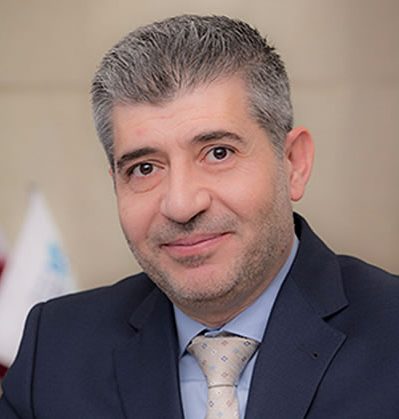
-
Valery Katkalo
Professpor Valery Katkalo is First Vicerrector and Dean of the Faculty of Business and Management of the Higher School of Economics in Russia (HSE).
Additionally, Professor Katkalo is the Vice President of EFMD, member of the Boards of Trustees of EFMD and Skolkovo Institute of Science and Technology, and member of the Supervisory Board of the Far Eastern Federal University.
Earlier on, he led the Graduate School of Management at SPbU and served as the Dean of Sberbank Corporate University, Chairman of the EPAS Accreditation Board at EFMD, and member of the Board of Directors of PJSC Transneft.
He was also been member of several Advisory Boards for global business schools (HEC-Paris, Fuqua School at Duke University, WU-Vienna), and has authored more than 8 books and several articles on evolution of strategic management theory and management education in the top international and Russian peer-reviewed and professional journals.
Professor Katkalo holds Undergraduate (with honors) and Doctoral degrees in Economics from St. Petersburg University, and he did post-doctoral studies at Haas School of Business, UC Berkeley.
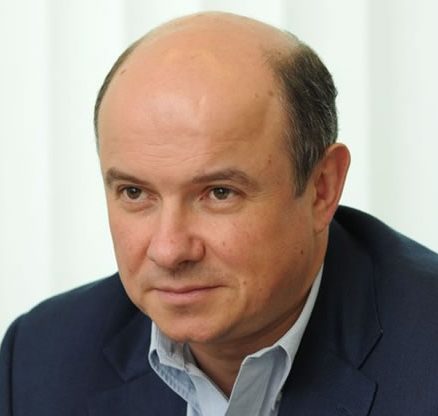
-
Raffaele Marchetti
Deputy Rector for Internationalization, Luiss
Professor in International Relations (ordinario SPS/04), joint appointment at the Department of Political Sciences and School of Government-SoG, Luiss
Academic Director/Coordinator
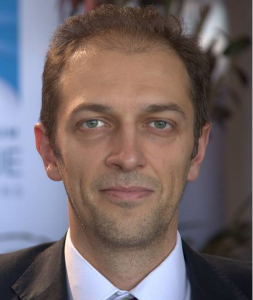
-
Anne McElvoy
Anne McElvoy is a British journalist, Senior Editor at The Economist and Head of The Economist Radio. She is also author of The Saddled Cow, East Germany’s Life and Legacy
She began her career on the Times, covering East Germany, German unification, the Balkans and Russia before becoming Deputy Editor of the Spectator and Political Columnist of the Daily Telegraph. Most recently, she was Executive Editor of the London Evening Standard and the newspaper’s political columnist.
She joined The Economist in January 2011. Ms. McElvoy also presents the BBC arts and ideas programme “Night Waves” and is a regular panelist on the BBC Radio 4 “Moral Maze” and BBC2 “Review Show”. She also makes political documentaries.
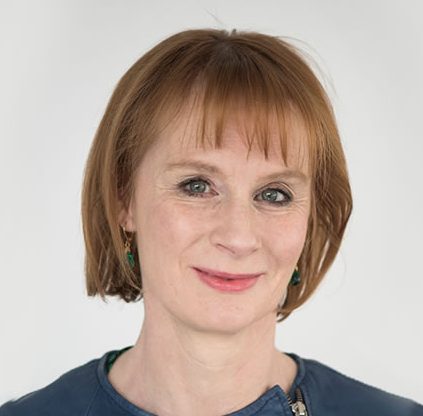
-
Kasturi Behari Leak
Professor Behari-Leak is interim Director of Academic and Professional Staff Development in the Centre for Higher Education Development at UCT.
Her work in this area focuses on exploring the interplay between structure (national, institutional, departmental and disciplinary) and culture and how this influences academics’ critical agency in the interest of change. She currently teaches on the New Academics Practitioners’ Programme (NAPP), The Short Course on Teaching (TSCOT), and the Learning and Teaching in Higher Education (LTHE) module of the PGDip/ Master’s coursework.
She is President of the Higher Education Learning and Teaching Association of Southern Africa (HELTASA) and a council member of the International Consortium of Educational Development (ICED). Likewise, she is project leader of a national academic staff development collaborative project (UCDG), NATHEP. She was co- chair of the Curriculum Change Working Group at UCT, commissioned to facilitate discursive engagements on curriculum change and decolonisation across the university.
She is on the advisory committee for GHEAR, a sub-committee of the World Universities Network; and is part of several national and international research consortia, focused on HE. She has published in the area of higher education studies and decolonising pedagogies/ decolonising the curriculum.
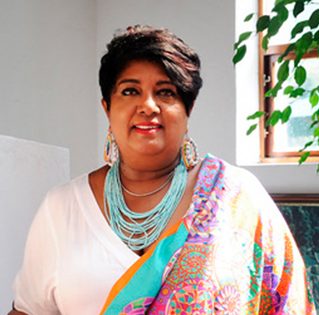
-
Anthony Grayling
Anthony Grayling is the Founder and Principal of New College of the Humanities (UK Campus at Northeastern University, USA), and a Supernumerary Fellow of St Anne’s College, Oxford. Until 2011, he was Professor of Philosophy at Birkbeck College, University of London.
He writes the “Thinking Read” column for the Barnes and Noble Review in New York, is the Editor of Online Review London, and a Contributing Editor of Prospect magazine. He has written and edited over thirty books on philosophy and other subjects, and for several years, he wrote the “Last Word” column for the Guardian newspaper and a column for the Times.
In addition, he was the Honorary Secretary of the Aristotelian Society for nearly ten years and he currently is a representative to the UN Human Rights Council for the International Humanist and Ethical Union. He is a Vice President of the British Humanist Association, the Patron of the UK Armed Forces Humanist Association, and an Honorary Associate of the National Secular Society.
Anthony Grayling was a Fellow of the World Economic Forum for several years and has served as a Trustee of the London Library and a board member of the Society of Authors. He is a Fellow of the Royal Society of Literature and a Fellow of the Royal Society of Arts. He has been judge of the Man Booker Prize, Art Fund prize, and Wellcome Book Prize.
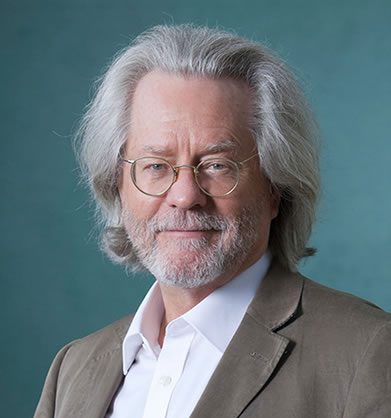
-
Dwight A. McBride
Dr. Dwight A. McBride became the 9th President of The New School in New York City in 2020.
Prior to his appointment at The New School, Dr. McBride was Provost and Executive Vice President for Academic Affairs at Emory University. Additionally, he served at Northwestern University, as Dean of The Graduate School and Associate Provost for Graduate Education, and at the University of Illinois at Chicago as Dean of the College of Liberal Arts & Sciences.
A leading scholar of race and literary studies, Dr. McBride is co-founder and co-editor of the James Baldwin Review, and co-editor of The New Black Studies book series at the University of Illinois Press. In 2003, he was awarded the Monette/Horowitz Trust 2003 Achievement Award for independent research that combats homophobia.
Dr. McBride is a founding co-director, with Dr. Earl Lewis, of the Academic Leadership Institute, a partnership between the University of Michigan and The New School that supports the development of academic leaders into higher education leadership roles who are committed to diversity and inclusion.
Dr. McBride received his AB in English with a certificate in African American Studies from Princeton University, and his MA and PhD in English from the University of California.
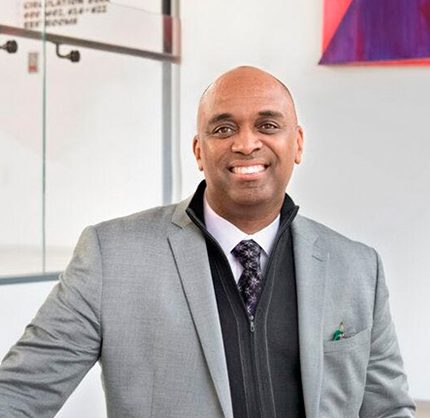
-
Carlos Montúfar
Carlos Montúfar is one of the founders of the Universidad San Francisco de Quito and its Rector since 2015.
As a physicist who has devoted his whole life to education, he has authored the book: “A look at the cosmos that discovers us”, where he includes his experience teaching physic to his students in an allegedly “easy way”.
Carlos is a Liberal Arts firm believer and just 30 years after its foundation USFQ has become the top university in Ecuador. He was also one of the founders of Colegio Menor San Francisco de Quito (Elementary, Middle and High School) recognized as one of the best in the city. The school has over 1,600 students and owns the AdvancEd accreditation, one of the most important in the world. The success of these institutions lays over the quality of their teachers, its curriculum based in Liberal Arts and the foundational principles of “Freedom, Goodness, Beauty and Truth.”
Carlos strongly believes that education is essential for development and transcendental for the future of a country. Particularly, he considers that education in science and technology is the only way in which a country can move into the future.
He studied undergraduate and graduate programs in the University of Notre Dame (Indiana, US) where he earned his Ph.D. in Physics, and he has a post doctorate in nuclear physics.
